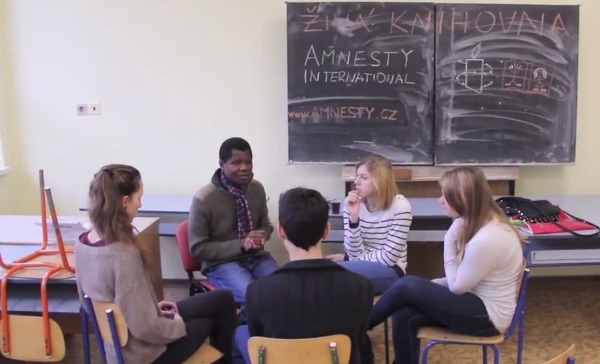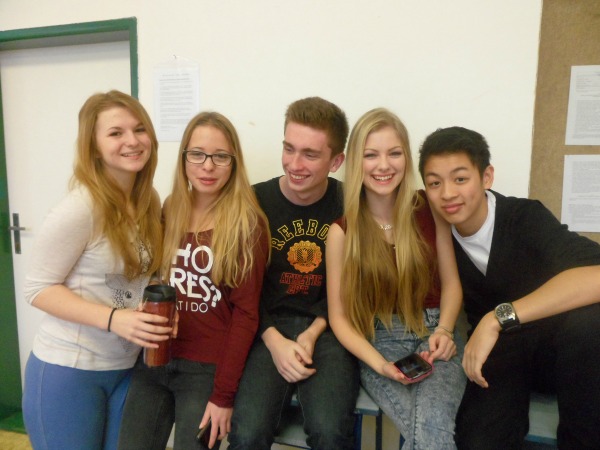Living, breathing ‘Human Books’ are telling their real-life stories to school students in the Czech Republic looking to learn from the real faces of migration and discrimination and dispel the prejudices evoked by harmful stereotypes.
Once upon a time, in a land far, far away there lived a boy. This boy was forced on a dangerous journey that led him across land and sea, to the Czech Republic. Here he is now, a man, sat telling his story as a human book, to a group of students learning about his journey, putting a real face to the topic of migration. That far away land is real: Angola, and the hero of the story, a real person called Leonardo Teca.

When Leonardo was invited to be a human book he agreed, and took it as an adventure: “I am not only giving something, I am also receiving so much from this experience, children are very interested in knowing my story and understanding why I moved to Czech Republic. I love telling them about my culture and break down stereotypes. On top of this I get the chance to learn from other ‘books’; we are now a big group of friends here!” says Leonardo.

At school many of us have been taught that books are an endless source of knowledge. Life has also taught us that we can learn just as much, if not more, by talking to each other with curiosity and respect. Amnesty Czech Republic has brought the best of both worlds together with story-telling ‘human books’ like Leonardo taking part in living library events in schools.
Each human book, a person with an extraordinary life story to share, comes from a minority group and lives in the Czech Republic. There is a history of minority group discrimination in the country, says Jiří Bejček, Human Rights Education Coordinator at Amnesty Czech Republic, and those discriminated against are often Roma, refugees, Muslim, physically disabled persons, or foreigners in general. Attitudes against Roma are particularly common amongst high school students.

On one day in November 2014 Amnesty members from discriminated minority groups were invited to a school in Prague to tell their life stories of displacement and suffering, but also of activism and hope. Leonardo, along with several other human books joined the event.
Small groups of students spent 20 minutes with each ‘human book’ during which she or he shared her or his personal story. Despite the overall uplifting atmosphere, Leonardo explained how some people don’t get to live happily-ever-after and some are forced to leave their land to seek a better life.
After attending the event, Agata, 14 years old, was moved to say that she now understands “how hard it must have been for these refugees to cross borders in order to escape major troubles in their home countries.”
According to Jiří Procházka, another human book: “Non-heterosexual adolescents are under considerable danger to commit suicide, thanks to this event we are now fighting this problem all together.”
Agata now says that she recognizes the underlying attitudes behind racism and discrimination, and she understands its impact on others. “I am happy that I have met foreigners through the Human Library workshop, now I am not afraid to communicate with them anymore,” she says.

This event was one of the many ‘human books events’ organised in 2014.
The human libraries concept was first tested in a few schools and after initial successes, it is now embedded into a larger educational programme implemented in over 20 schools in the country.
The programme includes four workshops to discuss the harmful consequences of stereotypes with students.
Over the past two years Amnesty has collected a ‘catalogue’ of over 40 human books to participate in the workshops, sourced from Amnesty’s networks and through cooperation with other non-governmental organizations.
Last year 10 schools took part in the program and 10 more schools are taking part over the Spring of 2015.


